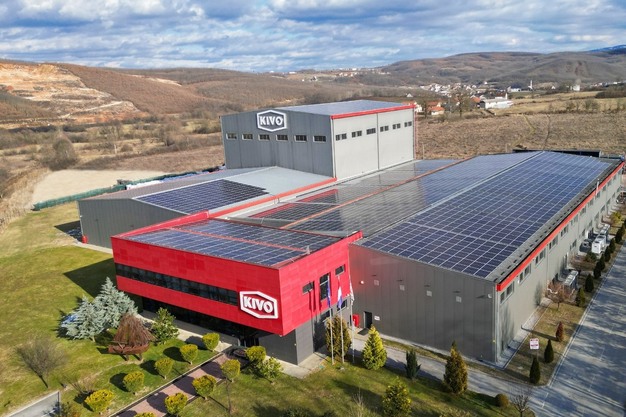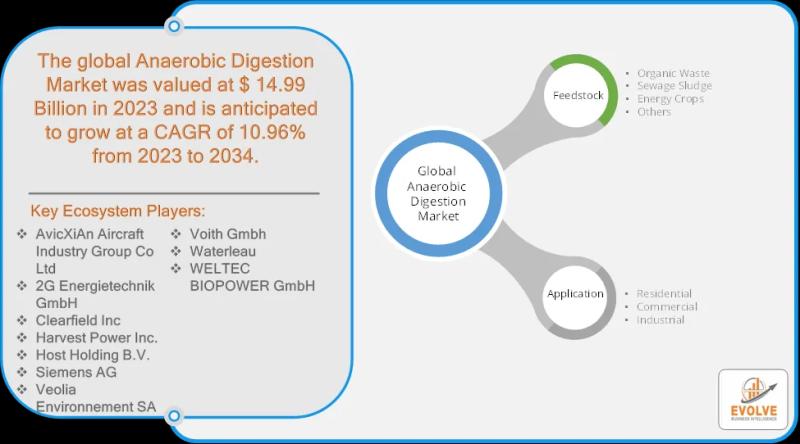Decowraps and KIVO Flexible Plastics join forces for sustainable European production – FloralDaily

Report on the Strategic Partnership Between Decowraps and KIVO Flexible Plastics
Introduction: A Partnership for Sustainable Development Goals
A strategic partnership has been formed between Decowraps and KIVO Flexible Plastics to advance sustainable production within the European floral packaging sector. This collaboration directly supports the United Nations Sustainable Development Goals (SDGs), particularly focusing on responsible production, clean energy, and industry innovation.
Commitment to Responsible Consumption and Production (SDG 12)
The partnership is fundamentally aligned with SDG 12 by promoting sustainable production patterns and moving towards a circular economy.
- Circular Economy Focus: The collaboration combines KIVO’s sustainable production capabilities with Decowraps’ market experience to create a circular economy model for floral packaging.
- Use of Recycled Materials: KIVO develops films using up to 100% Post-Consumer Recycled (PCR) material, significantly reducing waste and the demand for virgin resources.
- Localized European Production: By establishing production in Europe, the partnership shortens supply chains, reduces transportation emissions, and enhances control over the entire production process from raw material to finished sleeve.
Advancements in Industry, Innovation, and Clean Energy (SDG 9 & SDG 7)
The joint venture invests in modern infrastructure and clean energy, contributing to sustainable industrialization and innovation.
- Investment in Technology (SDG 9): Decowraps has invested in three state-of-the-art sleeving machines at the KIVO facility in Kosovo, enabling the local development and production of floral packaging.
- Renewable Energy Integration (SDG 7): The Kosovo production facility utilizes renewable energy, with solar panels supplying 30% of its energy requirements, thereby reducing its carbon footprint.
Fostering Decent Work and Economic Growth (SDG 8)
The establishment and operation of the production facility in Kosovo provide significant local economic benefits, in line with SDG 8.
- Job Creation: The facility employs over 100 skilled workers, contributing to local economic development and providing decent work opportunities.
- Enhanced Market Flexibility: The European production base offers customers shorter lead times and greater flexibility, fostering a more resilient and efficient regional market.
Conclusion: A Collaborative Step Towards a Sustainable Future
The partnership between Decowraps and KIVO Flexible Plastics serves as a model for achieving sustainability in the packaging industry. By integrating principles from SDG 17 (Partnerships for the Goals), the collaboration actively works to achieve a circular economy, reduce environmental impact, and support economic growth, creating a sustainable future for the floral industry.
Sustainable Development Goals (SDGs) Addressed
The article on the partnership between Decowraps and KIVO Flexible Plastics addresses several Sustainable Development Goals (SDGs) through its focus on sustainable production, renewable energy, economic development, and collaborative efforts.
- SDG 7: Affordable and Clean Energy: The article highlights the use of renewable energy in the production process.
- SDG 8: Decent Work and Economic Growth: The establishment of a production facility and the creation of jobs are discussed.
- SDG 9: Industry, Innovation, and Infrastructure: The text points to investment in modern technology and the development of local production capabilities.
- SDG 12: Responsible Consumption and Production: The core of the partnership is centered on sustainable packaging, use of recycled materials, and moving towards a circular economy.
- SDG 17: Partnerships for the Goals: The entire article is about a strategic collaboration between two companies to achieve shared sustainability objectives.
Specific SDG Targets Identified
Based on the article’s content, several specific SDG targets can be identified:
-
SDG 7: Affordable and Clean Energy
- Target 7.2: “By 2030, increase substantially the share of renewable energy in the global energy mix.” The article directly supports this target by stating that KIVO’s production facility in Kosovo utilizes “renewable energy including solar panels that provide 30% of its energy needs.”
-
SDG 8: Decent Work and Economic Growth
- Target 8.2: “Achieve higher levels of economic productivity through diversification, technological upgrading and innovation…” The partnership’s investment in “three sleeving machines” and the use of “modern technology” at the Kosovo facility align with this target of technological upgrading to improve productivity.
-
SDG 9: Industry, Innovation, and Infrastructure
- Target 9.4: “By 2030, upgrade infrastructure and retrofit industries to make them sustainable, with increased resource-use efficiency and greater adoption of clean and environmentally sound technologies and processes…” This target is addressed through the collaboration’s focus on “sustainable European production,” combining “modern technology” with “renewable energy” and the use of recycled materials.
-
SDG 12: Responsible Consumption and Production
- Target 12.5: “By 2030, substantially reduce waste generation through prevention, reduction, recycling and reuse.” This is a central theme, as KIVO develops packaging “using up to 100% recycled (PCR) material in its films.” The partnership’s shared vision for a “circular economy in floral packaging” directly contributes to this target.
-
SDG 17: Partnerships for the Goals
- Target 17.17: “Encourage and promote effective public, public-private and civil society partnerships…” The article is a clear example of a private-private partnership between Decowraps and KIVO. It states, “This collaboration represents a step toward more efficient, high-quality, and sustainable European production,” demonstrating a partnership aimed at achieving sustainability goals.
Indicators for Measuring Progress
The article mentions or implies several indicators that can be used to measure progress towards the identified targets:
-
For SDG 7 (Target 7.2)
- Indicator 7.2.1 (Renewable energy share in the total final energy consumption): The article provides a specific metric for this indicator by stating that solar panels provide “30% of its energy needs” at the production facility. This is a direct, quantifiable measure of the share of renewable energy used.
-
For SDG 8 (Target 8.2)
- Implied Indicator (Job Creation): The article mentions the facility has “over 100 skilled employees,” which serves as an indicator of job creation and economic development in the region.
-
For SDG 12 (Target 12.5)
- Indicator 12.5.1 (National recycling rate, tons of material recycled): While not a national rate, the article provides a company-level indicator for recycling by specifying the use of “up to 100% recycled (PCR) material in its films.” This percentage serves as a direct measure of the use of recycled content and waste reduction efforts.
-
For SDG 17 (Target 17.17)
- Implied Indicator (Number and quality of partnerships for sustainable development): The existence of the formal “partnership with KIVO Flexible Plastics” is itself an indicator. The article details its purpose—”a close collaboration focused on quality, efficiency, and sustainability”—which speaks to the quality and strategic nature of the partnership.
Summary of SDGs, Targets, and Indicators
| SDGs | Targets | Indicators |
|---|---|---|
| SDG 7: Affordable and Clean Energy | 7.2: Increase substantially the share of renewable energy in the global energy mix. | The share of renewable energy in the facility’s energy mix, explicitly stated as “30% of its energy needs” from solar panels. |
| SDG 8: Decent Work and Economic Growth | 8.2: Achieve higher levels of economic productivity through technological upgrading and innovation. | The creation of “over 100 skilled” jobs and investment in “modern technology” and new machinery. |
| SDG 9: Industry, Innovation, and Infrastructure | 9.4: Upgrade infrastructure and retrofit industries to make them sustainable and increase resource-use efficiency. | Investment in “three sleeving machines” and establishing a “sustainable European production” facility that uses renewable energy. |
| SDG 12: Responsible Consumption and Production | 12.5: Substantially reduce waste generation through prevention, reduction, recycling and reuse. | The use of “up to 100% recycled (PCR) material” in films and the stated goal of achieving a “circular economy in floral packaging.” |
| SDG 17: Partnerships for the Goals | 17.17: Encourage and promote effective public-private and civil society partnerships. | The formal partnership between Decowraps and KIVO to advance sustainable production and a circular economy. |
Source: floraldaily.com
What is Your Reaction?
 Like
0
Like
0
 Dislike
0
Dislike
0
 Love
0
Love
0
 Funny
0
Funny
0
 Angry
0
Angry
0
 Sad
0
Sad
0
 Wow
0
Wow
0













































































